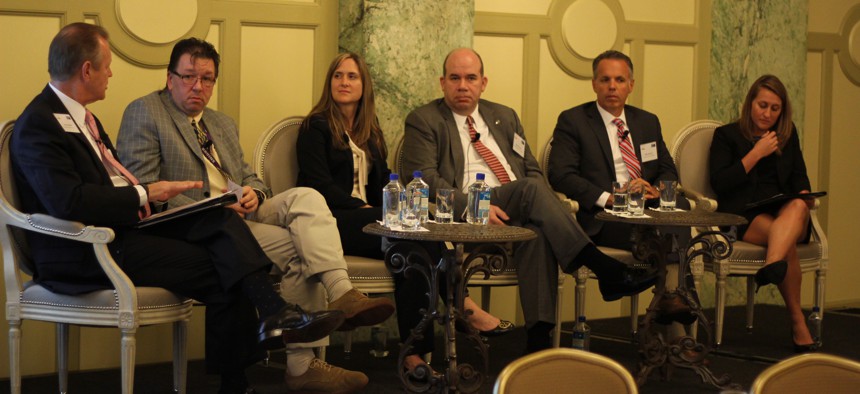
Photo courtesy of GovExec Events
How Can Federal Teleworkers Avoid Feeling “Left Behind?”
To present and discuss the findings from GBC’s latest research on telework, Verizon and GBC partnered for an event featuring a panel of experts from agencies with strong telework programs.
GBC’s recent report on the state of federal telework reveals that the demand for policies friendly to a distributed workforce is growing. As demonstrated in the graph below, 67% of our respondents say they would choose to work remotely more often than they currently do if given the opportunity. However, GBC’s other results suggest that communication challenges and cultural setbacks continue to pose problems to the developing telework community.
To present and discuss the findings from GBC’s latest research on telework, Verizon and GBC partnered for an event featuring a panel of experts from agencies with strong telework programs. One topic was the apparent resistance of managers to embrace telework: GBC found that managers are less likely than their employees to favor greater opportunities for working remotely. The panelists suggested that telework forces managers to move away from the traditional mentality of “managing individuals,” and instead focus on “managing work products.” Embracing this mindset, as well as treating remote work as a privilege, will help managers work through their transition to supervising from afar.
In the Q&A portion, one audience member asked panelist Rebecca Ayers of OPM for suggestions on how to maintain rapport among team members who are split between their homes and offices. In order to avoid anyone from feeling “left behind,” Ayers suggested that practices should be devised at the team-level. For example, a team could agree that independent of their schedules for the remainder of the week, it would be their custom for everyone local to come to the office on Mondays, thus ensuring that they could always have face-to-face contact at least once per week.
The other panelists joined in with additional suggestions, including the future possibility of the office being the “reason people come into work,” because of its social opportunities and productive atmosphere. The panelists seemed to agree that employees often want to come into the office, but they greatly value the option to work remotely and the trust of their employers that it implies.
This post is written by Government Business Council; it is not written by and does not necessarily reflect the views of Government Executive Media Group's editorial staff. For more information, see our advertising guidelines.





